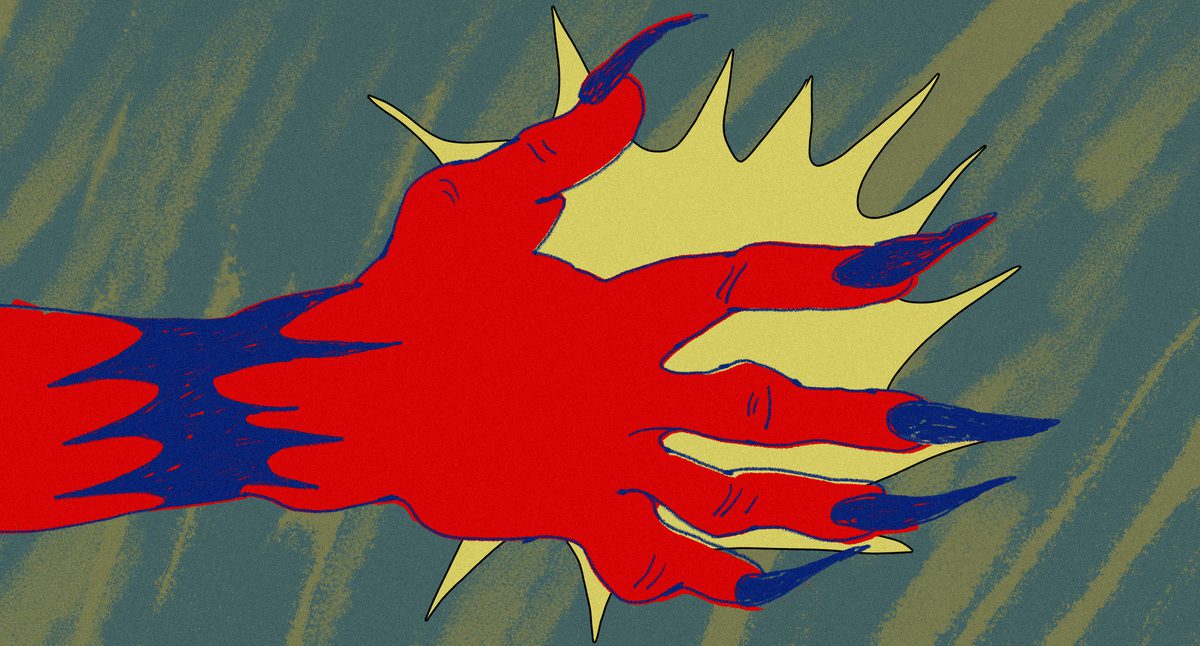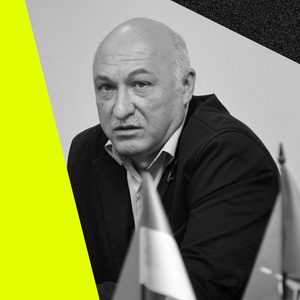Is the End of the Hot Phase of the War Possible by the End of 2024? Yes, but with Compromises That Ukrainians Are Hardly Ready For

The possibility of a diplomatic settlement of the Russian-Ukrainian war has been discussed since day one. However, President Volodymyr Zelensky denied the prospect of negotiations with dictator Vladimir Putin and even issued a corresponding decree.
But obviously, the situation is changing. Relying on the Ukrainian “peace formula,” Zelensky hopes to end the hot phase of the war by the end of 2024. And he does not rule out that Ukraine may return some of its territories not militarily, but diplomatically. All this should happen with the help of the West, which will put the appropriate pressure on Russia, thus inclining Moscow to negotiate on Kyiv’s terms.
Unfortunately, international and military experts are not so optimistic about the West’s ability to put diplomatic pressure on Russia or to provide Ukraine with enough military assistance to drive the Russian army from its territory. Nevertheless, a certain compromise can be worked out in the near future. Svitlana Hudkova, editor of Zaborona, talked with experts about this.
The West is unable to bring Russia to the negotiating table through diplomacy
For the first time, the Ukrainian president has publicly voiced a possible time frame for the end of the war, although he clarified that it only concerns a hot phase.
“I believe that if we are united and follow, for example, the format of the Peace Summit, we can end the hot phase of the war. We can try to do this by the end of [2024],” the President said.
But this requires, among other things, Western pressure on Russia to agree to “sit down and think about ending the war.”
Throughout the full-scale war, the West has systematically imposed sanctions against various economic sectors of the Russian Federation, as well as personal sanctions against Putin’s entourage. International organizations adopted numerous resolutions demanding that the Kremlin withdraw its troops from Ukraine. Putin was isolated from the civilized world, and even more so: a warrant was issued for his arrest. But nothing has worked so far. So does the West have anything else that can force the Russian dictator to follow the path of diplomacy?

There are several options, says political scientist Dmytro Levus. According to him, the West actually has many levers of influence. Firstly, it is the application of a full-fledged sanctions policy. For instance, against the Russian energy sector, namely, putting a complete stop on buying Russian oil. Moreover, secondary sanctions can be applied against the companies that would continue to buy Russian energy: Indian, Chinese, and others.
“Let’s take Rosatom. The impossibility of sanctions is explained by the fact that it is too embedded in the modern economic system. But in reality, this is not true. Similarly, it is possible to finally completely exclude the Russian banking system from the international system. And we can also impose secondary sanctions on those who will help Russia circumvent sanctions,” the expert says.
In addition to sanctions, the world should recognize Russia as a terrorist country and Vladimir Putin as an illegitimate president, since the ‘elections’ were held, among other things, in the occupied Ukrainian territories. The absence of such clear position is argued, in particular, by the fact that it will make any cooperation with Russia impossible. But, according to Levus, this does not keep anyone from working in the humanitarian field, which should be quite enough.
So why does the West still hesitate to take radical steps and weaken the Russian economy as much as possible with a precise strike? The political scientist gives several reasons.
“It is the duty of the free world to stop Russia. But this is not happening, because the UN mechanisms do not allow it. This organization was created to maintain the balance of the world at that time,” Levus notes: Russia is still a huge trading partner, and for some countries, the corruption component of such cooperation is also involved. The third point is fear. They say they can’t deal with Russia in such manner, because although it has violated the international law, it has nuclear weapons, and they cannot provoke it. And the fourth is the outright stupidity that also prevails in the world, caused by Russian propaganda.”
So, despite all the possibilities, the political scientist does not yet see any prospects for changing the Western policy toward Russia. At the same time, he does not rule out that some territories of Ukraine can be liberated through diplomacy. However, this should be preceded by a military defeat of Russia.
“The entire coalition that was formed in support of the Ukrainian peace formula is important. And it is this coalition that, once the appropriate preconditions are created on the battlefield, can help Russia leave certain territories,” Dmytro Levus said.

Illustration: Kateryna Kruhlyk / Zaborona
Defeating Russia on the battlefield is hampered by the weakness of the West
When President Zelensky spoke about the possibility of returning certain territories through diplomatic means, he also noted that in addition to diplomatic pressure, it is important that the Russian army be defeated on the battlefield. This will give Ukraine a stronger position at the negotiating table.
“Yes, we need to be strong on the battlefield. It is desirable not to retreat, it is desirable to stand, and even more desirable to take some steps that will weaken Russia, and it will start to retreat,” he said.

So far, the initiative at the front is on the Russian side, and the Armed Forces of Ukraine are forced to stand on the defensive, which does not strengthen our negotiating position at all, said Pavlo Lakiychuk, head of security programs at the Center for Global Studies “Strategy XXI”. To gain an advantage, Ukrainians must seize the initiative. But this requires human and material reserves.
“With a strategic reserve, we will be able to plan counteroffensive operations where the enemy does not expect. And now we are accumulating reserves, albeit slowly. To understand, we need to fully staff those brigades and units that are holding the line and ensure not only their replenishment but also their recovery. At the same time, we need to ensure the formation of new units with people and equipment. The availability of equipment and ammunition depends primarily on our partners. If we can manage this, we have a chance to seize the initiative,” says the military expert.
As in the case of diplomatic pressure on Russia, the provision of military assistance to Ukraine in full is also stalled. Of course, Western aid is very important, but the problem is that it is only enough for defense, not offense.
Ukraine spends an unacceptable amount of time transferring certain types of weapons that are supposedly not allowed to be given, because they cross the red lines. This was the case with the long-range ATACMS missiles. Eventually, the Ukrainian army received them, but they still cannot be used to fire on Russian territory.
Nevertheless, the expert believes that in the current realities, we have only a military, not a political and diplomatic option to resolve the conflict.
“Since 2014, our authorities have been saying on all international and domestic media platforms that there is no military solution to the Crimean problem. Crimea can only be returned through political and diplomatic means. But when I asked about specific steps, there was no answer. Similarly, for a long time, I could not get an answer as to why we could not return Crimea by military means. Until one day I was told that they did not want to escalate it with Russia. And when they are talking about the political and diplomatic path again, I can say that there’s none. I am skeptical about the president’s statement, although we should definitely try different ways and options. But so far I see only the military way. Because there are no prerequisites for a political and diplomatic solution to this situation on the terms that are acceptable to us,” said Pavlo Lakiychuk.

Illustration: Kateryna Kruhlyk / Zaborona
Freezing the conflict is possible, but compromises should be made
The military expert adds that under certain conditions, it is possible to freeze the conflict, but he does not see them yet.
“To stop the hot phase of the war, we need to compromise with the enemy, but there is a paradox in Ukrainian public opinion: people seem to see that the time for negotiations has come, but not on Putin’s terms,” he says.
At the same time, according to a survey by the Kyiv International Institute of Sociology (KIIS), although as of May 2024, the majority (55%) opposed any territorial concessions, a gradual increase in the share of those ready for territorial concessions has been observed over the past 6 months.
“Thus, by the end of 2023, the readiness for concessions increased to 19%, in February 2024 — to 26%, and in May 2024 — to 32%. The share of those who oppose any territorial concessions, respectively, has been steadily declining during this period,” KIIS comments.
Therefore, the possibility of sitting down at the negotiating table to stop the hot phase of the war is not at all excluded. The only question is, at what stage are we ready to stop this conflict?

“Currently, about one-fifth of Ukraine’s territory is under Russian occupation [in February 2024, Zelensky mentioned the figure of 26%]. And in this context, Moscow has a stronger negotiating position. But it suffers other losses — in manpower and equipment. And the fact that Putin is forced to ask Iran and North Korea for help proves that their situation is not very good, and Russia is interested in negotiating. But the extent to which it is ready to cede territories is the question,” Stanislav Zhelikhovsky, PhD in Political Science, international expert, said in a commentary to Zaborona. In general, the expert believes that Russia can be persuaded to withdraw from some of the occupied territories, but it will not leave without a fight.
In general, the expert believes that Russia can be persuaded to withdraw from some of the occupied territories, but it will not leave without a fight.
“We need to look for compromises. For example, the weakest area for Russia is the south of Ukraine. The Russian army does not fully control the Kherson and Zaporizhzhia regions and their regional centers, so there may be bargaining points here. And I do not rule out that as a compromise we will be forced to abandon our Euro-Atlantic course, or certain time frames will be set as to when this can happen,” Zhelikhovsky said. “In general, we do not expect to be accepted into NATO in the near future, so it seems to me that the ten-year security agreements we conclude with our partners can determine this time frame.”
So there are certain points on which Ukraine and Russia can agree. Although this will not mean the end of the war, but rather a pause that will help Ukraine preserve its statehood.
“Of course, this is not a very acceptable scenario for us, but if such realities arise, and we want to negotiate, I cannot imagine Russia showing up at a summit and saying it would simply withdraw its troops. It’s impossible, we have to be realistic. Of course, if the West provided so many weapons that we could not only defend ourselves but also conduct an offensive, we could recapture the South and gain a stronger negotiating position. Then NATO membership would not be a subject for discussion, and the world could put more pressure on Russia at the diplomatic level to liberate Donbas and Crimea. But so far, this is not being done,” the international expert summarized.






